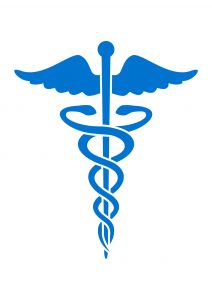
As San Francisco qui tam lawsuit attorney Gregory J. Brod has pointed out in his blogs, there are several common schemes that fraudsters employ to steal funds from Medicare and other healthcare government programs, including coding fraud, fake billing and kickback schemes, among others. These schemes, in turn, rob the U.S. Treasury and taxpayers and drive up healthcare costs for the rest of us. And over the last week, there were two notable textbook cases of healthcare fraud in the United States, one in Florida and the other in Illinois, in which fake, or phantom, billing was the fraudulent method of choice.
In the Florida case, a Sarasota doctor agreed to pay $750,000 to settle allegations that he and his clinic in Sarasota and later Bradenton, Fla., billed Medicare for office visits and examinations that he never performed. According to the Tampa Bay Business Journal, federal investigators charged that the physician in question, Dr. Steven Chun, billed Medicare from 2006 through 2011 for office visits at the highest level possible, as well as falsely claiming that he conducted comprehensive examinations with complex problems. The allegations were detailed in a written statement from U.S. Attorney A. Lee Bentley III.
The Dr. Chun case highlights an often important element in many healthcare fraud cases – a whistleblower or whistleblowers step forward to expose the alleged fraud. In this case, Cathia Gavin and Penelope Thomas, who once worked as nurses for Chun, blew the whistle on the fake billing that made up the bulk of the allegations in the complaint filed in Tampa federal court. The case also demonstrates how private citizens such as Gavin and Thomas were able to sue on behalf of the federal government by filing the complaint under the whistleblower provisions of the False Claims Act, and to ultimately receive a share of the recovery. The agreement in the Dr. Chun case was announced Tuesday.

In the Illinois case, a suburban Chicago pharmacist was sentenced on Friday to seven years in prison for collecting more than $1.7 million in fake health insurance claims and using the proceeds to finance what federal prosecutors called “a lavish lifestyle.” According to the Chicago Sun-Times, Robert Kielar, of Mundelein, Ill., operated a pharmacy in Chicago from which more than 600 false claims were issued between 2004 and 2010 that resulted in a $1.7 million illegitimate gain from Blue Cross and Blue Shield of Illinois.
Court documents indicated that Kielar used patients’ insurance information to bill the insurance companies for the drug Procrit, which stimulates the production of red blood cells. The insurance companies were billed for the drug in spite of the fact that the patients were never given a prescription for it, much less provided with the medication or authorized the use of their personal information. After being indicted, Kielar proceeded to forge prescriptions, patient receipts and invoices in an attempt to make the claims appear legitimate.
Through the fraudulent acquisition of funds, Kielar was able to pay salaries to himself and his ex-wife as well as pay mortgages on three properties in three states. He will now have to pay more than $1.7 million in restitution.
Between the two aforementioned cases, all of the key elements involved in healthcare fraud schemes came to the fore: the method of fraud employed, which in both cases was fake or phantom billing, an invocation of the False Claims Act due to the alleged violations, and crucially, the appearance of a whistleblower to file the lawsuit on the government’s behalf. If you have information regarding a potential case involving healthcare fraud, please contact the experienced attorneys at the Brod Law Firm for a free consultation.
-James Ambroff-Tahan contributed to this article.
See Related Blog Posts:
The Many Guises of Medicare Fraud: Part I
Case Against Hospital Chain Puts Spotlight on Bold Scheme to Gin Up Bills
 Healthcare Fraud Lawyer Blog
Healthcare Fraud Lawyer Blog


